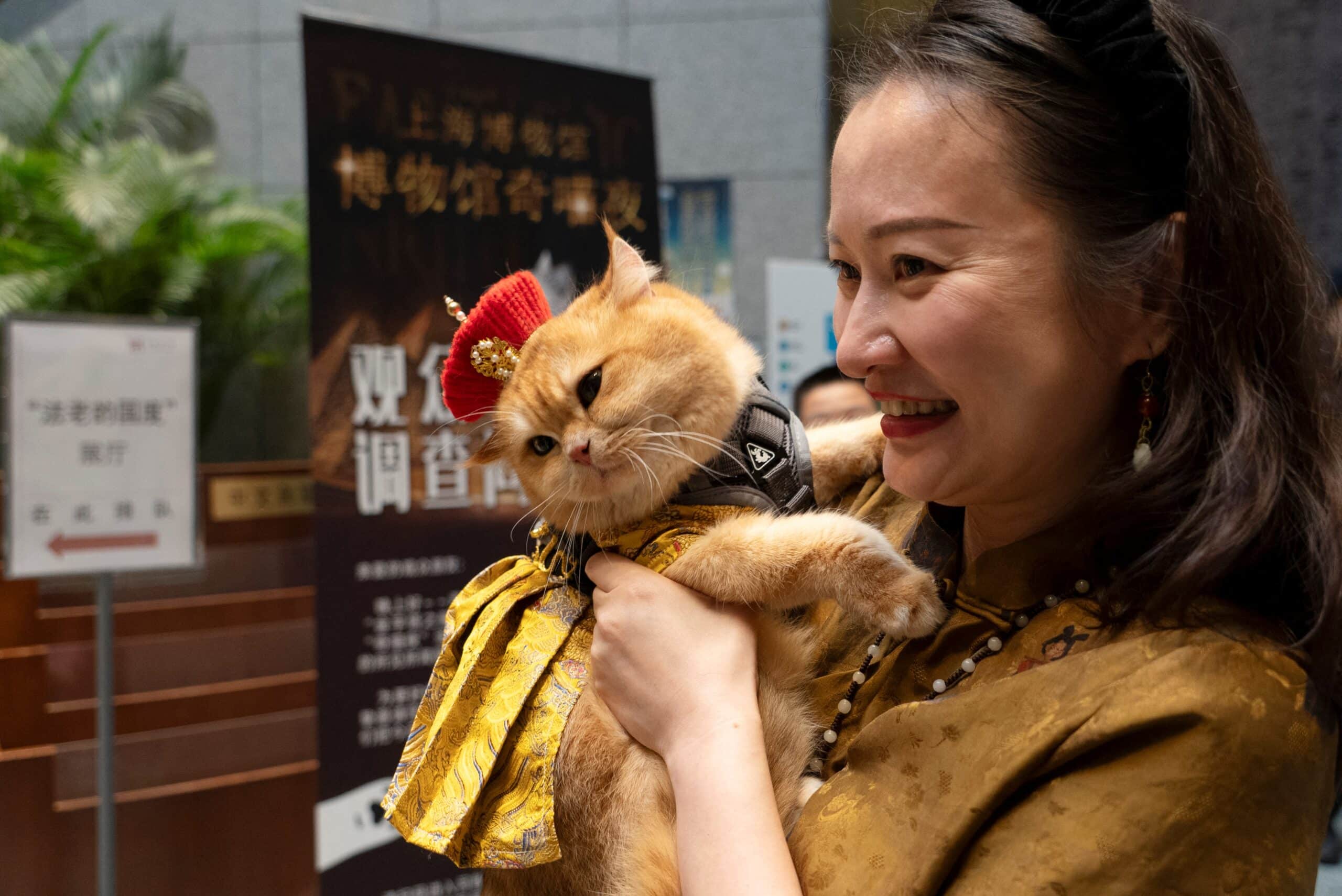
PET LOVER Cat owner Amy carries “Trump” while attending cat night at the Shanghai Museum on July 27. —Agence France-Presse
SHANGHAI, China — A queue of glamorous visitors stood outside Shanghai Museum twitching impatiently, tails flicking and whiskers quivering as they waited to be let in for the institution’s inaugural ancient Egypt cat night.
Feline tickets for Saturday night’s event sold out within days, as Shanghai’s devoted pet owners seized the chance to share an educational experience with their animals—and share the photos on the mostly pedigree cats’ personal social media accounts.
One pet owner told Agence France-Presse (AFP) she had postponed a trip to Europe to ensure she could nab one of the 200 available tickets for her regal ginger “son.”
READ: Who wants to be a fur parent? Cats in CHR up for adoption
Trump—named for his physical and psychological resemblance to the US presidential candidate—was dressed as a Chinese emperor, and blinked haughtily as journalists flocked around him with cameras.
“I cannot imagine my life right now without a cat,” his owner Amy told AFP. “So I really can have the same feeling why Egyptian persons, they valued cats on such a level.”
The number of pets in China has soared, reaching over 120 million in 2023, and cats are the most popular.
The trend is being driven largely by younger generations, many of whom see their “furred kids” as a cheaper substitute for human children, experts say.
Sacred
Shanghai Museum is capitalizing on that interest—Saturday’s event, heralded as a first in China, is just one of 10 planned cat nights.
As the guests of honor filed in, perched on shoulders or peering out of handbags, they had their vaccination and insurance records checked before they were transferred into a fleet of specially designed kitten-eared prams.
Claire, who had dressed herself and her German Rex Tiedan in matching Egyptian costumes, said the exhibition showed “cats have always been humans’ good friends.”
“Now young people are under great pressure, cats help us relieve a lot of mental pressure… probably the same as in ancient times,” she said.
Cats were considered sacred in ancient Egypt, and associated in particular with Bast, a goddess of fertility, birth and protection. —Agence France-Presse